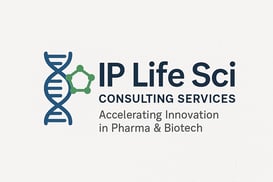The Transformative Impact of AI on Pharmaceutical Development
5/30/20252 min read


Introduction to AI in the Pharma Industry
The pharmaceutical industry has historically faced numerous challenges, from lengthy research and development processes to high costs associated with drug discovery and clinical trials. In recent years, the advent of artificial intelligence (AI) has emerged as a powerful catalyst for change. By leveraging machine learning algorithms and data analysis, AI is significantly transforming pharmaceutical development, making processes more efficient and effective.
Enhancing Drug Discovery Through AI
One of the most profound impacts of AI on pharmaceutical development is its ability to enhance drug discovery. Traditionally, identifying viable drug candidates could take years of painstaking research. Today, AI systems can analyze vast amounts of biological data, predict molecular interactions, and identify potential drug targets within a fraction of the time. Natural language processing and deep learning algorithms facilitate the analysis of scientific literature and databases, allowing researchers to glean insights that inform their drug development efforts.
Improving Clinical Trials and Patient Outcomes
AI is also revolutionizing clinical trials, a critical component of pharmaceutical development. Utilizing predictive analytics, AI can optimize trial design, patient selection, and trial recruitment, ensuring that the right patients are matched with appropriate clinical studies. This targeted approach not only enhances patient outcomes but also increases the likelihood of trial success. Additionally, AI-powered monitoring tools can track patient responses in real-time, enabling quicker adjustments to treatment protocols, thereby improving the overall efficacy of the drug being tested.
The Future of AI in Pharmaceutical Development
As we move forward, the integration of AI in pharmaceutical development is expected to grow exponentially. Pharmaceutical companies are increasingly investing in AI technologies to streamline workflows, reduce costs, and expedite the drug development timeline. The potential for AI to enhance precision medicine—tailoring treatments based on individual genetic profiles—is particularly promising and may lead to groundbreaking advancements in chronic disease management.
Nevertheless, the application of AI raises important ethical considerations and regulatory challenges. Ensuring data privacy, maintaining transparency in AI decision-making processes, and addressing biases in AI algorithms are vital to fostering trust and acceptance within the industry.
In conclusion, the impact of AI on pharmaceutical development is undeniable. By significantly improving drug discovery, optimizing clinical trials, and paving the way for precision medicine, AI is setting the stage for a new era in the pharmaceutical industry. As advancements continue, collaboration among researchers, regulators, and industry stakeholders will be crucial to harnessing the full potential of AI in the quest for innovative and effective therapies.
COntact
contact@lifesciconsulting.com
404-219-1296


